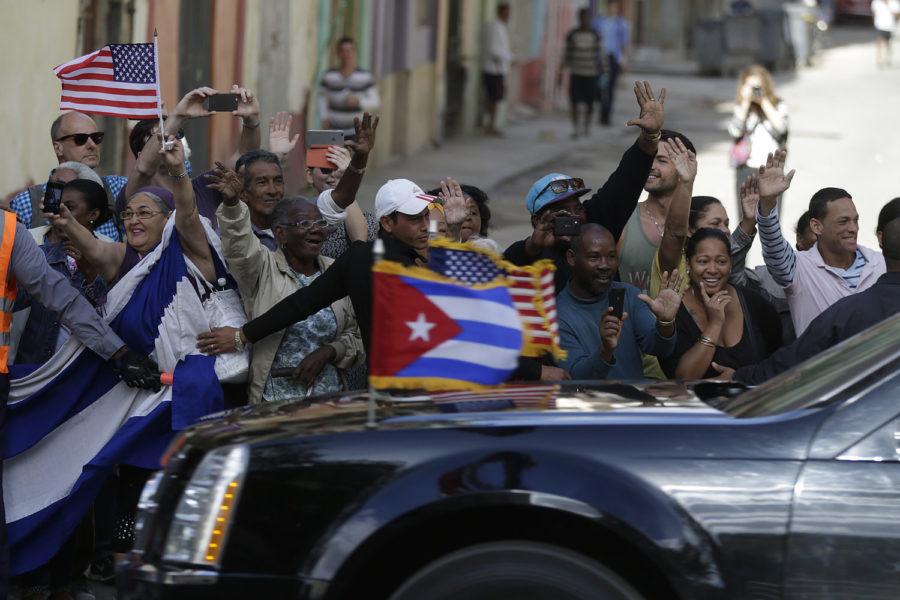Cuba visit could help Illinois, delegate says
March 23, 2016
Illinois has a lot to gain from improved relations between the United States and Cuba that President Barack Obama is trying to foster through his trip to the island nation, according to an agribusiness person who is part of a delegation currently there.
“We are way ahead of the game as far as building relationships, said Mark Albertson, director of strategic market development for the Bloomington-based Illinois Soybean Association. “Illinois has a lot at stake here and because of our [rail and shipping] infrastructure, we have a direct pipeline to Cuba.”
But because of continuing trade restrictions, mostly related to financing and credit, Albertson said, Illinois hasn’t been able to take advantage of those opportunities — yet.
Advertisement
However, Albertson thinks it’s only a matter of time before the embargo is ended, regardless of who moves into the White House after Obama leaves.
“Things are going to continue to move forward,” said Albertson, pointing to polls showing Americans strongly favor ending trade and travel restrictions. “Everyone seems to think it’s something irreversible, like trying to put toothpaste back in the tube.”
Albertson has been in Cuba since Saturday, part of a six-person delegation representing the soybean association, Illinois Cuba Working Group and U.S. Agriculture Coalition for Cuba.
“This is an exciting time to be here,” he said Monday.
It’s no coincidence they are there at the same time as Obama, he said, although they aren’t involved in any of his meetings.
MORE: Barack Obama: ‘Change going to happen’ in Cuba
Instead, they are reaching out to media focused on the president’s visit to make their case for why the embargo should be lifted.
Advertisement*
At one time, the United States had about 75 percent of the market for soybean oil, meal and whole beans; now it amounts to less than 10 percent, according to Albertson.
Trade restrictions prohibit U.S. companies from offering financing or credit to Cuba, causing a competitive disadvantage, he said.
And because the United States can’t import products from Cuba, the ships delivering soybeans or other products to Cuba have to return empty — “essentially we’re paying twice” the shipping cost, Albertson said.
But Obama’s visit gives hope to Cubans and their would-be U.S. trading partners, he said.
When a TV in a restaurant where they were eating showed Air Force One landing, Albertson said, the band stopped playing and people gathered to watch.
As Obama stepped off the plane, “the whole restaurant erupted in applause,” he said. “It’s a great moment to be with the Cubans.”
Although it was raining when Obama arrived and when he toured Old Havana, Cubans saw that as a good omen, according to Albertson.
In the Afro-Caribbean religion of Santeria, “they consider rain to be a cleansing event,” he said. To them, the rain symbolized “washing away the bad history between the two countries and a clean start for a new future,” Albertson said.
Follow Lenore Sobota on Twitter: @pg_sobota
___
(c)2016 The Pantagraph (Bloomington, Ill.)
Visit The Pantagraph (Bloomington, Ill.) at www.pantagraph.com
Distributed by Tribune Content Agency, LLC.
Advertisement









